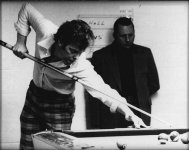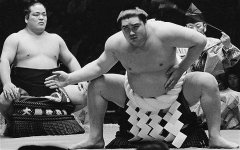I think in pool your observations are probably more right than wrong,...but in many other endeavors (tennis, golf, chess, music, math, swimming) there are legions of youth who are put into extremely high quality, regimented and competitive training environments for extended periods of time, and the variation in results cannot be explained by mere training time or quality. (see l.Figeroa's linked article for related sources).
A really good definition of talent was given in an earlier post:
"Psychologist Dean Keith Simonton argues that talent is best thought of as any package of personal characteristics that accelerates the acquisition of expertise"
(although I think it's reasonable to limit these characteristics to those that are genetic and not learned/developed)
Of course, that package of personal characteristics should and does include intellectual, emotional, and physical traits. And certainly ingredients such as dedications, desire, heart, and drive fall under "emotional traits" and therefore help to make up our notion of "talent".

